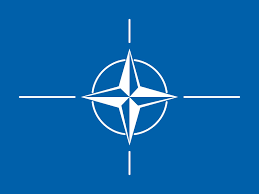The NATO-led peacekeeping mission in Kosovo, KFOR, has been rocked by espionage allegations following the arrest of a Croatian army pilot and his Serbian girlfriend in Croatia. The pair are accused of leaking sensitive information about KFOR troop movements in Kosovo to a Serbian political entity over a three-year period. This incident raises serious concerns about the security of KFOR operations and the potential compromise of classified information, prompting a swift response from NATO and the Kosovar government, both pledging full cooperation with Croatian authorities in the ongoing investigation. The incident also underscores the volatile political landscape of Kosovo and the enduring tensions between Kosovo and Serbia, two decades after the end of the Kosovo War.
The arrests came to light after the Split County Court in Croatia confirmed the pre-trial detention of the Croatian man and Serbian woman on espionage charges. While official details remain scant, local media reports suggest the Croatian army pilot, who was reportedly deployed with KFOR in Kosovo, shared confidential information with his girlfriend, who then allegedly passed it on to the Serb List, a Belgrade-backed political party representing Kosovo’s Serbian minority. The information reportedly pertained to troop movements, potentially jeopardizing the safety and security of KFOR personnel and operations in the volatile northern region of Kosovo. The involvement of both civil and military police, as well as Europol, highlights the gravity of the allegations and the international dimensions of the investigation.
The alleged leak of sensitive information strikes at the heart of KFOR’s mission in Kosovo, which is to maintain a safe and secure environment for all communities in the region, a mandate inherited from the United Nations. KFOR’s presence in Kosovo dates back to the end of the 1998-1999 war, a conflict that erupted following Kosovo’s declaration of independence from Serbia. Serbia’s refusal to recognize Kosovo’s independence continues to fuel tensions, particularly in northern Kosovo, where a significant Serbian population resides and often clashes with Kosovar authorities. The alleged espionage activities, if proven true, could further exacerbate these tensions and undermine KFOR’s efforts to maintain stability in the region.
The timing of this incident is particularly sensitive given the ongoing political dynamics in the region. Northern Kosovo has been the scene of repeated clashes between local Serbs and Kosovar authorities, with Serbia continuing to exert influence over its ethnic kin in the north. The alleged involvement of the Serb List, a prominent Serbian political party in Kosovo, in the espionage activities raises concerns about Serbia’s role in destabilizing the region and undermining KFOR’s peacekeeping efforts. The allegations also highlight the challenges faced by KFOR in navigating the complex political landscape and maintaining impartiality in a region marked by deep-seated ethnic divisions and historical grievances.
The investigation into the espionage allegations will likely focus on uncovering the extent of the leaked information, the duration of the alleged activities, and the potential damage caused to KFOR’s operations and security. Investigators will also seek to determine the motivations of the accused couple and the role played by the Serb List in receiving and utilizing the confidential information. The investigation’s findings will have significant implications for the future of KFOR’s mission in Kosovo and could lead to heightened security measures and increased scrutiny of personnel deployed in the region. Furthermore, the investigation could strain relations between Kosovo and Serbia and further complicate efforts to achieve a lasting political solution to the ongoing dispute.
The espionage allegations against the Croatian pilot and his Serbian girlfriend underscore the precarious security situation in Kosovo and the persistent challenges faced by KFOR in fulfilling its peacekeeping mandate. The alleged leak of sensitive information highlights the vulnerability of peacekeeping operations to insider threats and the importance of robust security protocols. The incident also serves as a stark reminder of the deep-seated divisions that continue to plague Kosovo and the need for concerted international efforts to promote dialogue and reconciliation between Kosovo and Serbia. The outcome of the investigation will be crucial in determining the extent of the damage caused by the alleged espionage activities and shaping the future trajectory of KFOR’s mission in Kosovo.













